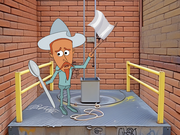(pronoun) this; these / (bound form) this; the (followed by a noun) / (bound form) this; these (followed by a classifier) (in this sense, commonly pr. [zhei4], esp. in Beijing)
lining / interior / inside / internal / also written 裏|里[li3]
li, ancient measure of length, approx. 500 m / neighborhood / ancient administrative unit of 25 families / (Tw) borough, administrative unit between the township 鎮|镇[zhen4] and neighborhood 鄰|邻[lin2] levels
really / actually / indeed / true / real / honest / dependable / (philosophy) reality
real / true / honest / really / solid / fruit / seed / definitely
to exist; to be alive / (of sb or sth) to be (located) at / (used before a verb to indicate an action in progress)
to have; there is / (bound form) having; with; -ful; -ed; -al (as in 有意[you3 yi4] intentional)
again; once more; re- / second; another / then (after sth, and not until then) / no matter how ... (followed by an adjective or verb, and then (usually) 也[ye3] or 都[dou1] for emphasis)
heavy / serious / to attach importance to
of; ~'s (possessive particle) / (used after an attribute) / (used to form a nominal expression) / (used at the end of a declarative sentence for emphasis) / also pr. [di4] or [di5] in poetry and songs
(completed action marker) / (modal particle indicating change of state, situation now) / (modal particle intensifying preceding clause)
to finish / to achieve / variant of 瞭|了[liao3] / to understand clearly
了
=
乛
+
亅
:
Mnemonic symbol from "to finish" and the shape of the character: a prize cup.
Li Qingzhao (li) is responsible for manufacturing a prize cup (了). She only needs to add a poetic engraving. Unfortunately, she suffers from a writer's block. In the aorta's living room (ao3), someone left a cryptic message engraved on the walls using a sickle (乛), which is still lying on the floor. Being an accomplished poet Li Qingzhao is able to understand the message clearly (了), realizes its poetic potential and starts to engrave it on the prize cup using a crowbar (亅).
Li Qingzhao (li) is responsible for manufacturing a prize cup (了). She only needs to add a poetic engraving. Unfortunately, she suffers from a writer's block. In the aorta's living room (ao3), someone left a cryptic message engraved on the walls using a sickle (乛), which is still lying on the floor. Being an accomplished poet Li Qingzhao is able to understand the message clearly (了), realizes its poetic potential and starts to engrave it on the prize cup using a crowbar (亅).


